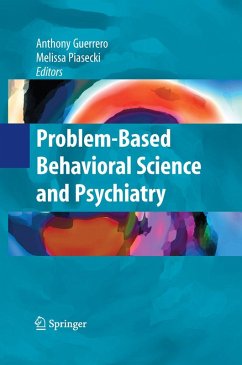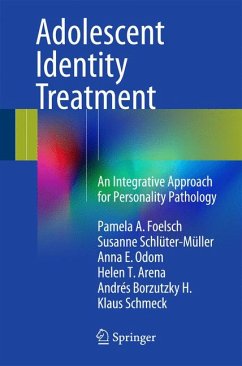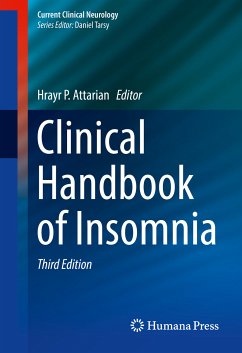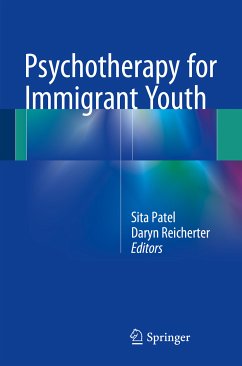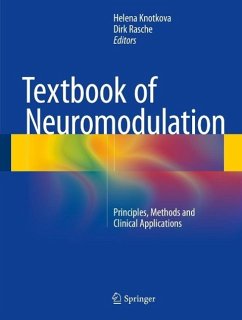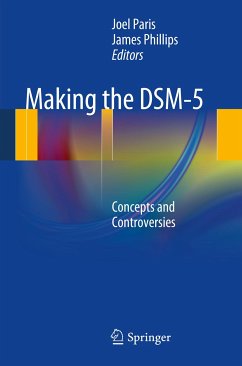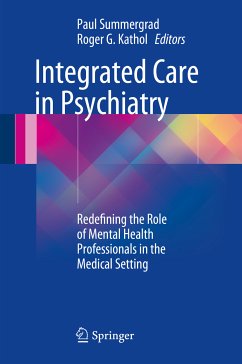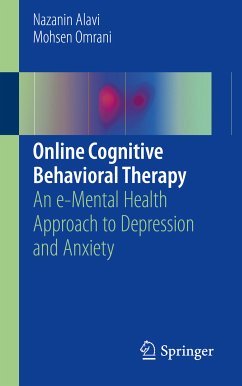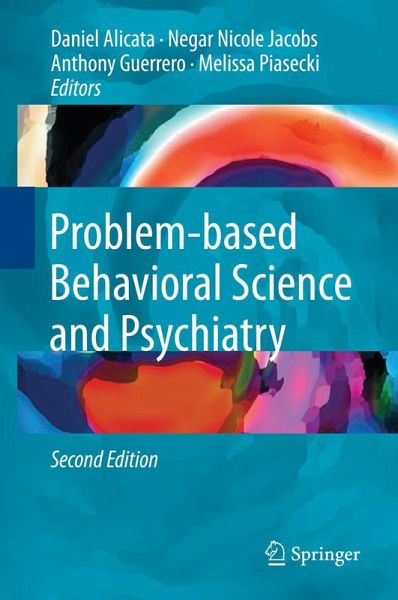
eBook, PDF
Problem-based Behavioral Science and Psychiatry (eBook, PDF)
Versandkostenfrei!
Sofort per Download lieferbar
Weitere Ausgaben:

PAYBACK Punkte
40 °P sammeln!





Problem-based Behavioral Science and Psychiatry (eBook, PDF)
Dieser Download kann aus rechtlichen Gründen nur mit Rechnungsadresse in A, B, BG, CY, CZ, D, DK, EW, E, FIN, F, GR, HR, H, IRL, I, LT, L, LR, M, NL, PL, P, R, S, SLO, SK ausgeliefert werden.
Dr. Alicata is an Associate Professor of Psychiatry, Associate Training Director of the Child and Adolescent Residency Training Program at the University of Hawai'i, John A. Burns School of Medicine. He has published in the areas of neuroimaging, youth addiction and the integration of telemental health in education, training and rural workforce development. Dr. N. Nicole Jacobs is an Associate Professor in the Department of Psychiatry and Behavioral Sciences at the University of Nevada School of Medicine. She serves as the Behavioral Science Coordinator and is the Co-Director of the Practice of Medicine Block. She completed her undergraduate education at the University of Washington in Seattle and earned her graduate degrees at the University of Nevada in Reno. She completed her internship and post-doctoral fellowship at the Veteran's Affairs Sierra Nevada Health Care System in Reno, Nevada. Her areas of special interest include development and delivery of evidence-based treatments, integrated medical student and resident education, behavioral health care with a focus on behavioral medicine and the delivery of behavioral health care in primary care settings, addictive disorders, infertility, implicit bias, and cross-cultural issues. Dr. Guerrero is Professor of Psychiatry and Clinical Professor of Pediatrics, Chair of the Department of Psychiatry, and Director of the Child and Adolescent Psychiatry Division and Residency Training Program at the University of Hawai'i John A. Burns School of Medicine. He has published in the areas of medical student education and problem-based learning, Asian and Pacific Islander mental health, and the interface between primary care and psychiatry. Dr. Melissa Piasecki is a professor of psychiatry and the Executive Associate Dean at the University of Nevada School of Medicine. She is also on faculty at the National Judicial College. Her specialty is forensic psychiatry. Sheearned her bachelor's degree and her M.D. from Washington University in St. Louis, Missouri. She completed her psychiatry residency at the University of Vermont and her forensic psychiatry fellowship at the University of Hawaii. She teaches psychiatry, the neuroscience of addiction, and forensic psychiatry to medical students, medical residents, and legal professionals. She is a fellow of the American Psychiatric Association and is a member of the American Academy of Psychiatry and the Law.
Produktdetails
- Verlag: Springer International Publishing
- Seitenzahl: 617
- Erscheinungstermin: 31. März 2016
- Englisch
- ISBN-13: 9783319236698
- Artikelnr.: 44884489
Für dieses Produkt wurde noch keine Bewertung abgegeben. Wir würden uns sehr freuen, wenn du die erste Bewertung schreibst!
Eine Bewertung schreiben
Eine Bewertung schreiben
Andere Kunden interessierten sich für


